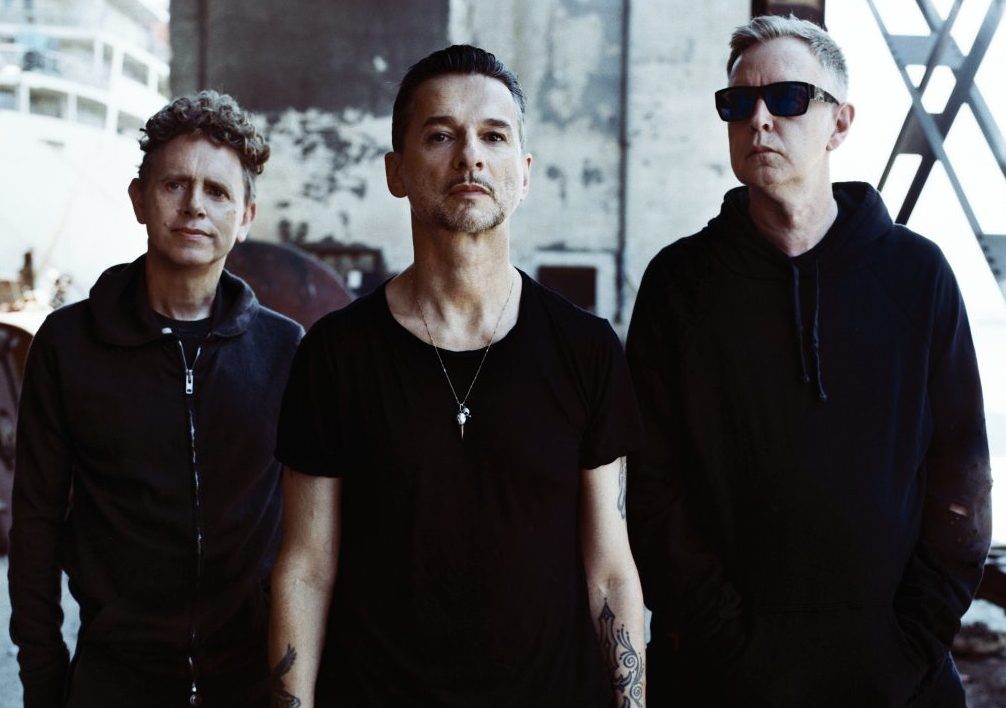
Photo by Anton Corbijn
2017 has been another exciting year for all Depeche Mode fans. Back in March, the British synthpop heavyweights returned with their 14th full-length called Spirit, and it looks like they aren’t interested in retiring just yet; they’re now even discovering their political take in these darkened times. 2017 is also the year when two important records in the band’s discography celebrate big birthdays. Ultra turns 20 while Music For The Masses turns 30. Since it’s never too late to discover the band’s almost four-decades-long discography, now might be a good time to do so.
You can start chronologically or by picking the best ones. And just in case you are going for the second option, I have you covered. Being a lifelong fan of the group, I ranked all 14 Depeche Mode albums so far from worst to best (including Spirit) and yes, I am very much aware that this isn’t the most objective list. But it also helps to document the ups and downs in the group’s vital biography. Well, and it’s fun, obviously. Everything counts in large amounts: here’s my definitive ranking. Feel free to share your input if you don’t agree with it.
14. A Broken Frame (1982)
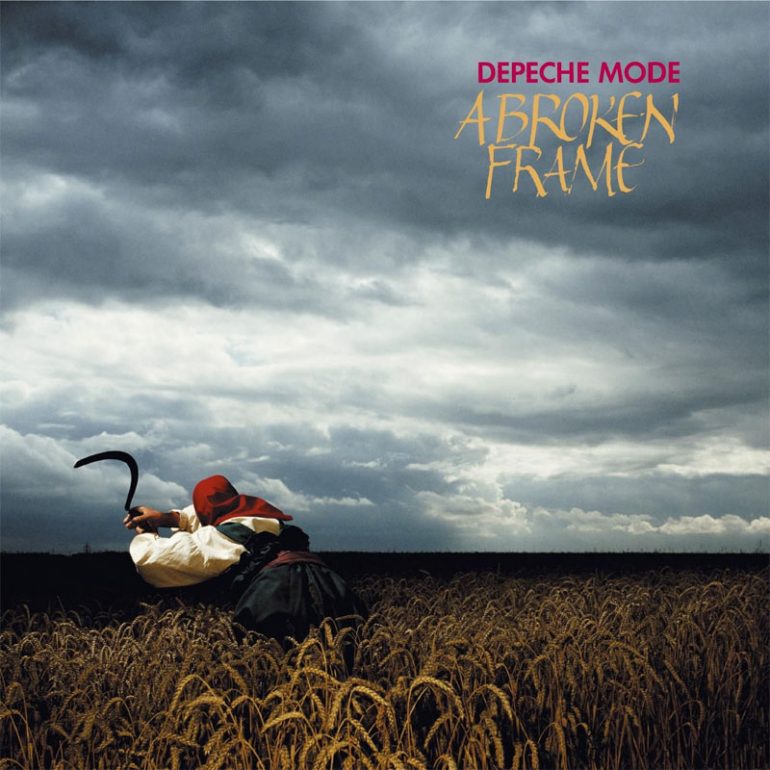
Worst Part Of It: You can sense the transitional character of A Broken Frame through the entire album. Having lost their main songwriter, Vince Clarke, after the first album clearly had an impact. Martin Gore tried to step in but surely wasn’t on the genius level we all fell in love with later. A few darker undertones are already sensible (Leave In Silence), but most of it just follows the teen synthpop simplicity of its predecessor. You might find tracks like The Meaning Of Love and See You funny or charming but let’s face it: they are cringe-worthy.
Best Part Of It: Well, they didn’t give up after Vince left and also pushed on following the release of this record. Those were the days when it was actually possible for bands to grow through multiple albums.
Most Memorable Song: The Sun And The Rainfall
13. Playing The Angel (2005)
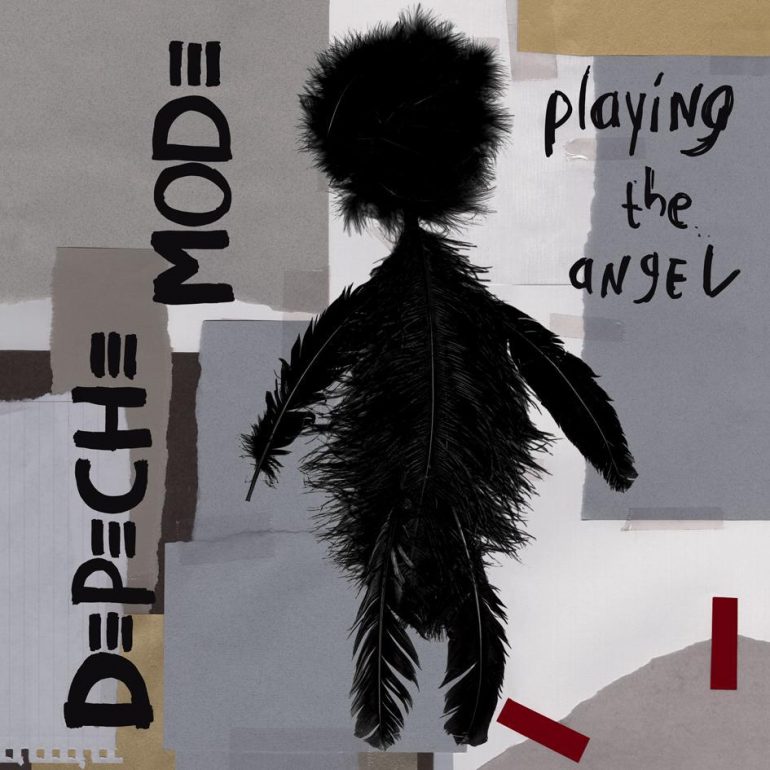
Worst Part Of It: The horrible mixing. I still don’t know how producer Ben Hillier did it but even 12 years later that sound is killing all dynamics. Aside from that technical fact, the band tried a bit too hard to please fans following the mixed reviews of the light-hearted Exciter. In an attempt of humour, Depeche Mode even wrote ‘Pain and suffering in various tempos’ on the back of the record. It’s as if they were saying ‘Okay, we’ve given up. You want that dark shit, you’ll get it!’ It’s a bit pretentious and forced and hasn’t aged very well. Same goes for the horrible artwork.
Best Part Of It: Following two relatively moody albums the band finally reignited their love for uptempo beats, giving us grooving songs like John The Revelator, Suffer Well and Lilian. Oh, and Dave Gahan started contributing his own songs for this one which was literally the only way to keep Depeche Mode alive.
Most Memorable Song: Precious
12. Speak And Spell (1981)

Worst Part Of It: Face it, it’s more ERASURE than Depeche Mode, which makes sense as Vince Clarke was the man in charge back then. Yes, they were barely 20 years old and it’s their first album but that will never excuse a track like What’s Your Name? P-R-E-double-T-Y? Look, I won’t hold it against them- it’s their debut. But there’s hardly a reason to listen to it today and say ‘Oh, this is really good’. If you have to pick one, you would instantly grab a record from their later period and you know that it’s true, right?
Best Part Of It: It hasn’t aged as bad as you thought it might have. And the fact that the album’s reduced lo-fi synthpop inspired artists like Röyksopp and La Roux made me worship its less annoying moments a bit more. Also, you can’t argue with singles like Dreaming On Me and the indestructible Just Can’t Get Enough. And don’t forget about their look back then. It’s just four kids trying to play Kraftwerk.
Most Memorable Song: New Life
11. Sounds Of The Universe (2009)
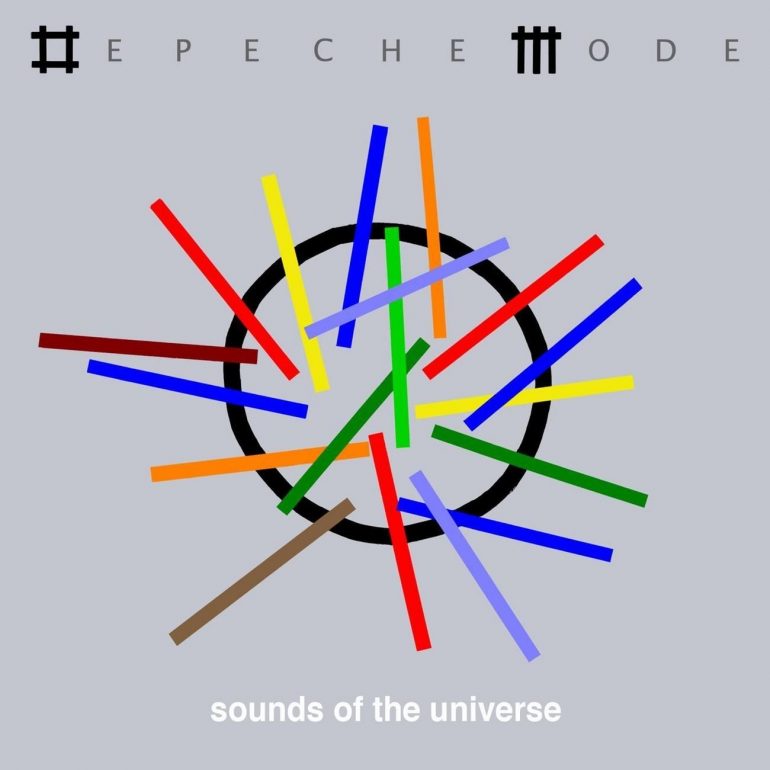
Worst Part Of It: A second album with Ben Hillier following the pretty mediocre Playing The Angel. It might have been a time when the band, albeit unintentionally, decided to play it safe while their side-projects slowly became more creatively fulfilling. At least that’s the intention I got. Martin Gore’s interest in all sorts of analogue synthesizers also felt like a PR stunt to distract from the weakness of his songwriting on this.
Best Part Of It: Although sticking with the same producer, the band clearly learned from the mistakes of their prior release. Sounds Of The Universe sounds way warmer, less aggressive and not nearly as bizarrely mastered as their first collaboration. It allows the songs and its sounds more freedom, maybe sometimes a bit too much (A song like In Chains gets lost in his own ambition). Still, it gave us Wrong one of the best Depeche Mode singles ever and that itself stands for something.
Most Memorable Song: Wrong
10. Construction Time Again (1983)
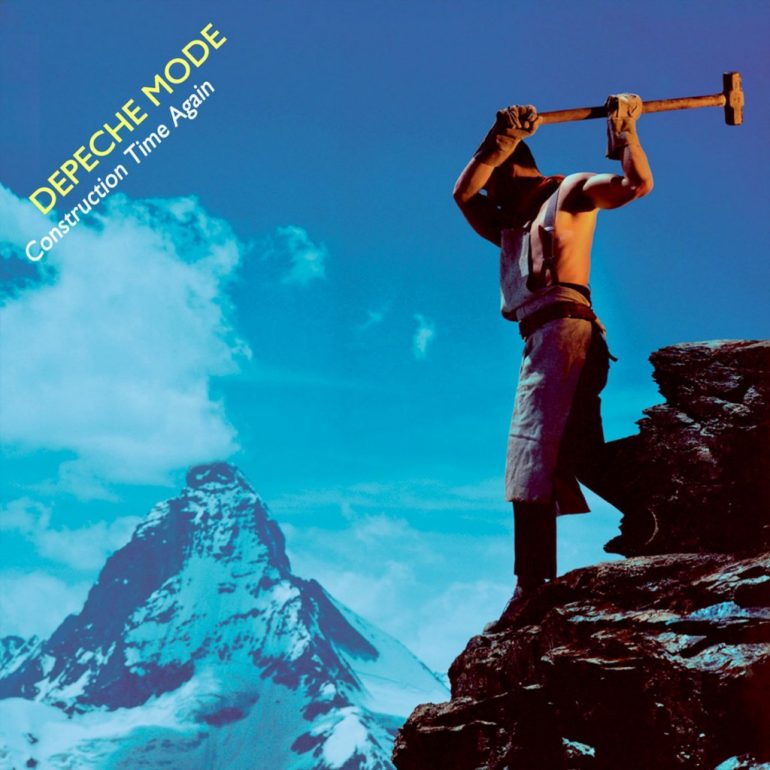
Worst Part Of It: The really good Get The Balance Right single wasn’t part of it. And the change from gentle synthpop straight to sampling construction sides came a bit out of the blue. A song like Pipeline clearly proves that you can overthink such an idea to the point where it just doesn’t make much sense anymore. It’s still a bit transitional, but unlike A Broken Frame the majority picked the better side.
Best Part Of It: Depeche Mode finally started to write those instant classics you’ve come to love. The fact that Vince Clarke’s live replacement, Alan Wilder, became a substantial part of the band clearly helped them to musically improve; for the first time it felt like the band had found a musical direction that suits them. The fitting songs and looks came later.
Most Memorable Song: Everything Counts
9. Delta Machine (2013)

Worst Part Of It: Although Dave Gahan finally brought his love for blues and gospel back to the band, it just didn’t feel as natural as his collaborative albums with Soulsavers. There are at least three tracks that are really not good enough to be on the album, making it too long. Oh, and the desperate attempt to write a new Personal Jesus with Soothe My Soul still feels very much out of place.
Best Part Of It: It’s the best of the three Hillier albums and a satisfying attempt by Gahan and Co. to finally embrace their age and deliver an odd record that is more interested in pleasing the group than their millions of fans. That soulful piece of synthesizer blues almost succeeded, and maybe Spirit will continue this journey in a fulfilling way.
Most Memorable Song: Heaven
8. Spirit (2017)
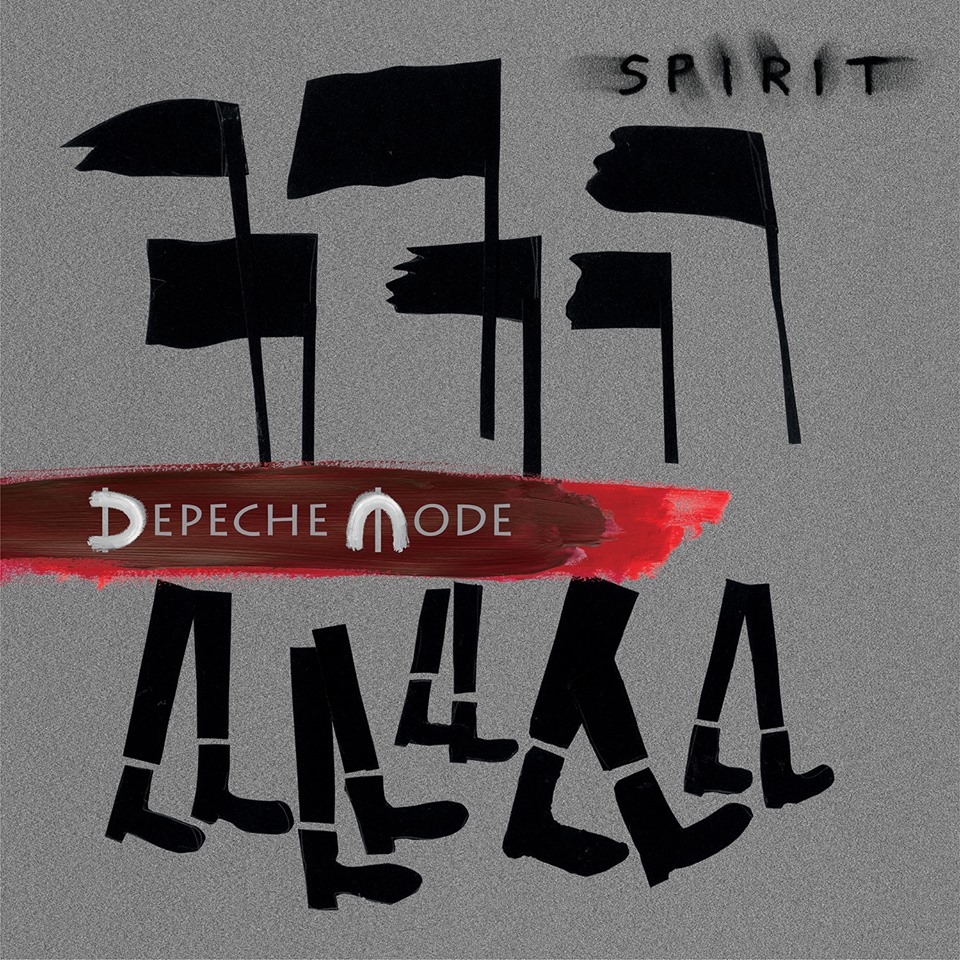 Worst Part Of It: The fact that it’s the first record with political lyrical content since Construction Time Again can be criticized as beint a bit pretentious… or as another argument for the urgency to bring these issues on the table. Oh, and by now Anton’s artwork became truly questionable in terms of quality.
Worst Part Of It: The fact that it’s the first record with political lyrical content since Construction Time Again can be criticized as beint a bit pretentious… or as another argument for the urgency to bring these issues on the table. Oh, and by now Anton’s artwork became truly questionable in terms of quality.
Best Part Of It: Following the ‘Hillier trilogy’ Depeche Mode finally switched producers, allowing James Ford to bring more clarity and directness into their sound. The outbalanced mix between techno-infected sounds and organic instrumentation really makes Spirit sound like a missing link between Violator and SOFAD. While Delta Machine almost felt like a ‘close to retirement’ record, this one delivers way more energy and hunger than originally expected. Not too bad after over 35 years in the business.
Most Memorable Song: Cover Me
7. Some Great Reward (1984)

Worst Part Of It: Shake The Disease (released one year later as part of a singles collection) wasn’t featured on the LP and would have been a really profitable addition.
Best Part Of It: It felt as if Depeche Mode finally found themselves with this LP, freeing themselves from the naive teen pop while embracing the dark and more industrial side of their music. Some Great Reward feels way more cohesive while also providing quality songs that allowed Martin L. Gore to explore more lyrical fields, like S&M, politics, religion and everyday boredom. That’s what great 80s teen angst anthems are made of!
Most Memorable Song: Blasphemous Rumours
6. Exciter (2001)
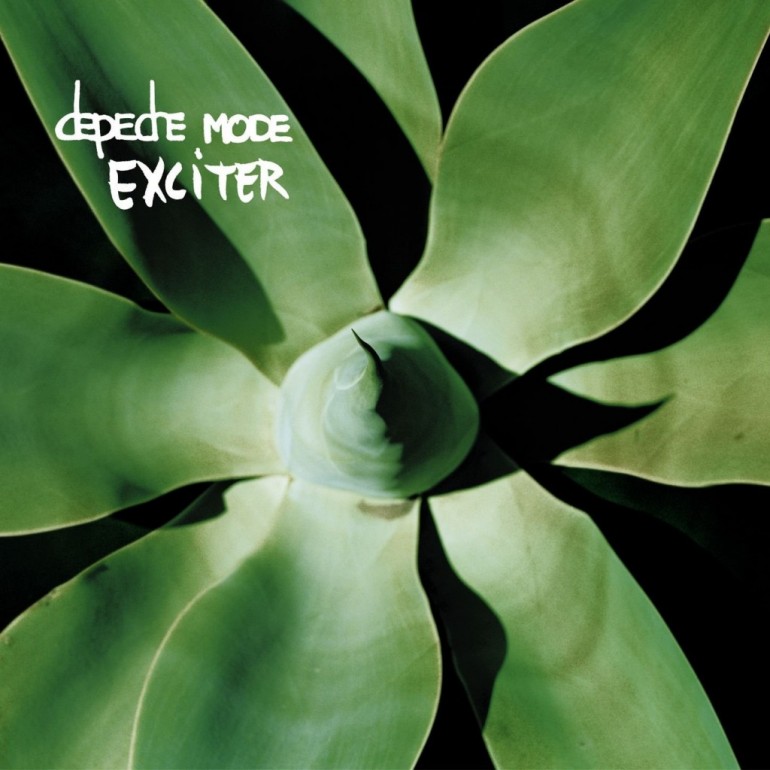
Worst Part Of It: How it’s been treated by the band and its fanbase ever since. For many people, it’s bright and tender attitude might have been too clear a cut from the struggling Depeche Mode of the 1990s. Also they should have kept the poor electro-clash attempt The Dead Of Night off the record for sure.
Best Part Of It: I already told you that before but that album was actually the last one Depeche Mode managed to surprise us with, as it didn’t fulfill the expectations of their fanbase. The reduced electronic patterns of Björk producer Mark Bell spread a new delicate sensuality, resulting in some of Gahan’s best vocal works so far in songs like When The Body Speaks and Goodnight Lovers. It’s not dark and gloomy, and it’s these circumstances alone which make Exciter so interesting and… well, truly exciting.
Most Memorable Song: When The Body Speaks
5. Music For The Masses (1987)

Worst Part Of It: It might be a bit too much stadium appeal but in the end it’s called Music For The Masses, so we’ve all been warned about its less subtle appeal. And somehow, Pimpf is still quite an odd choice for the album closer.
Best Part Of It: The switch in production duties from long-time friend and Mute boss Daniel Miller to David Bascombe- who previously worked with Peter Gabriel and Tears For Fears – surely had an impact. Everything’s bigger and more massive on the group’s sixth studio album. They left the path of the dark industrial sound of their past two records just in time to finally break into the US market with great synthpop anthems. Depeche Mode never balanced the thin line between alternative and mainstream pop better than on this LP.
Most Memorable Song: Never Let Me Down Again
4. Black Celebration (1986)
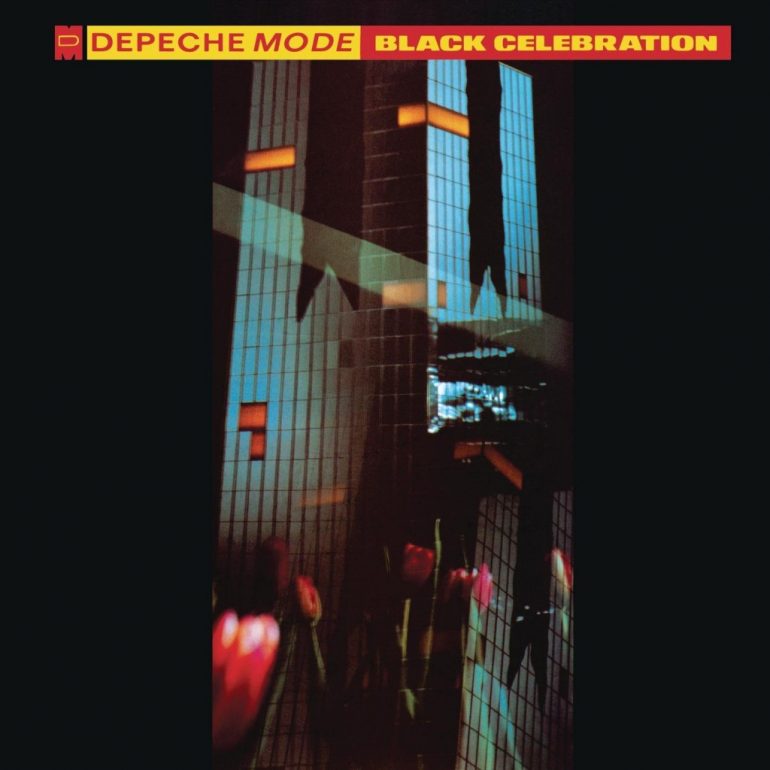
Worst Part Of It: It cemented that depressive goth/leather image once and for all, making it something the band (and most of their fans) couldn’t really shake off over the past decades. Well, there are worse things to be criticized for, right?
Best Part Of It: Even more so than on its predecessor Some Great Reward, Depeche Mode went full goth on this one, starting from the gloomy opening track right to the depressing industrial floor-filler New Dress at the end. In between they present us with some of their finest dark wave anthems and manage to even make a sexy song like Stripped sound quite depressing and desperate at the same time. Aside from that, there’s still room for catchy pop tunes like A Question Of Time and Here Is The House.
Most Memorable Song: Stripped
3. Songs Of Faith And Devotion (1993)
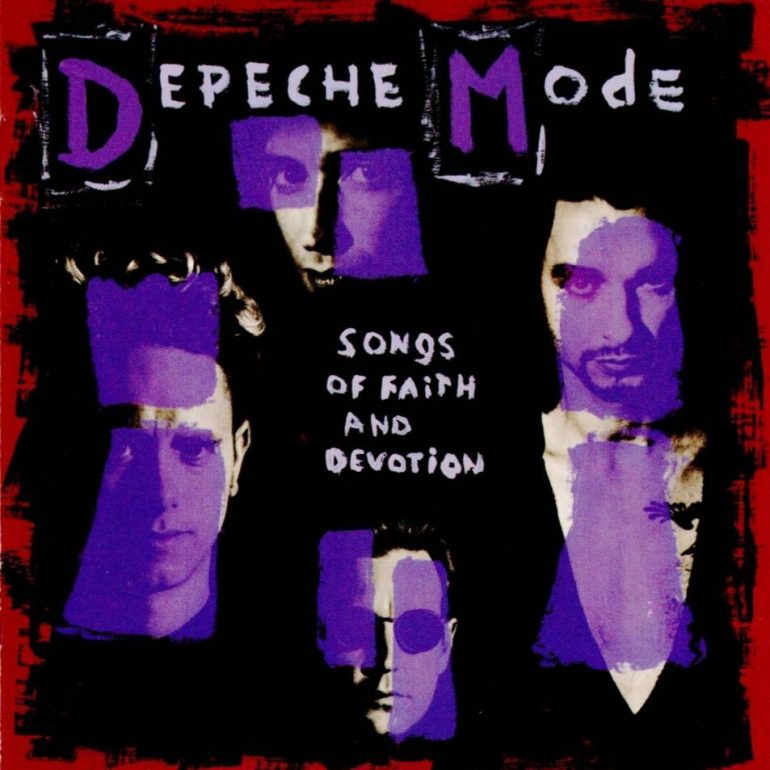
Worst Part Of It: It almost destroyed the band and got Dave Gahan killed… well, especially the massive tour following it. Plus Gore partly overdid that whole religious aspect a bit on this one.
Best Part Of It: It’s a massive shift away from the reduced Violator sound. SOFAD is packed with way too many textures and introduced a surprising more organic and rock sounding image of the group- especially Dave Gahan who turned into full grunge mode back then, including that terrible heroin addiction. There’s almost something biblical in this one, not just in terms of its lyrical content. In Your Room, Judas and Higher Love are larger than life. It turned out that the really tricky recording circumstances resulted in a haunting masterpiece that suddenly lifted the group into superstardom, although the prize for it was almost too high as it later turned out.
Most Memorable Song: In Your Room
2. Ultra (1997)
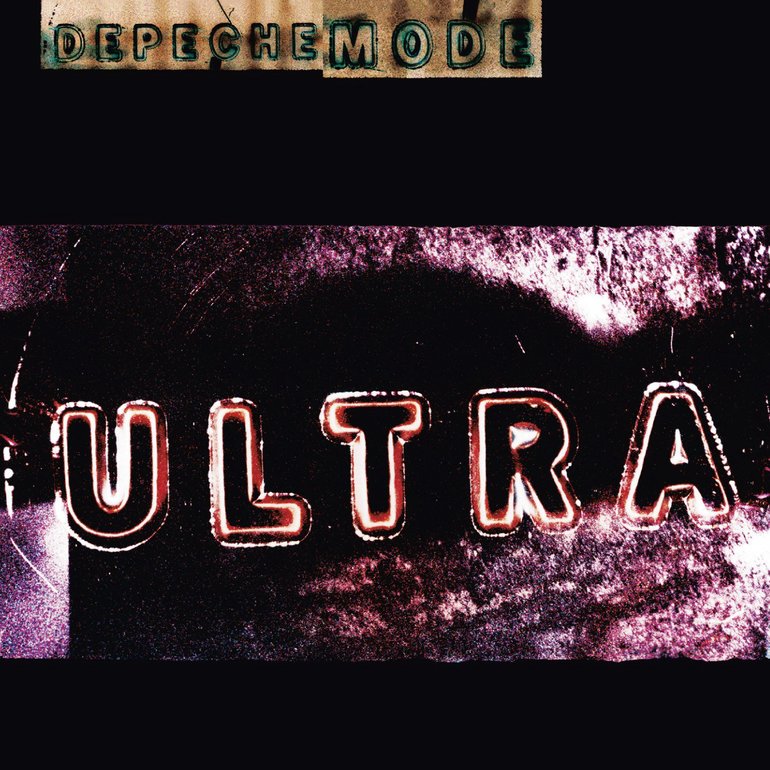
Worst Part Of It: They didn’t tour behind it which had its reason (aka the tour that almost killed them) so the songs somehow didn’t get the ‘live’ credit they deserved over the past years.
Best Part Of It: First of all the fact that they made it happen following the departure of Alan Wilder and Dave’s near-death experience through drug addiction. It’s decisions like that which kept Depeche Mode alive, and aside from that, Ultra is just a gentle and dark ride that feels a bit like the aftermath of the whole Songs Of Faith And Devotion madness. The trio celebrates introspection and sobriety with some of its most wonderful ballads like The Love Thieves, Home and Insight, all bound together by that sinister late-90s post-techno/ trip-hop vibe. It was a much needed sign of life back then and a rare moment to catch some breath.
Most Memorable Song: Sister Of Night
1. Violator (1990)
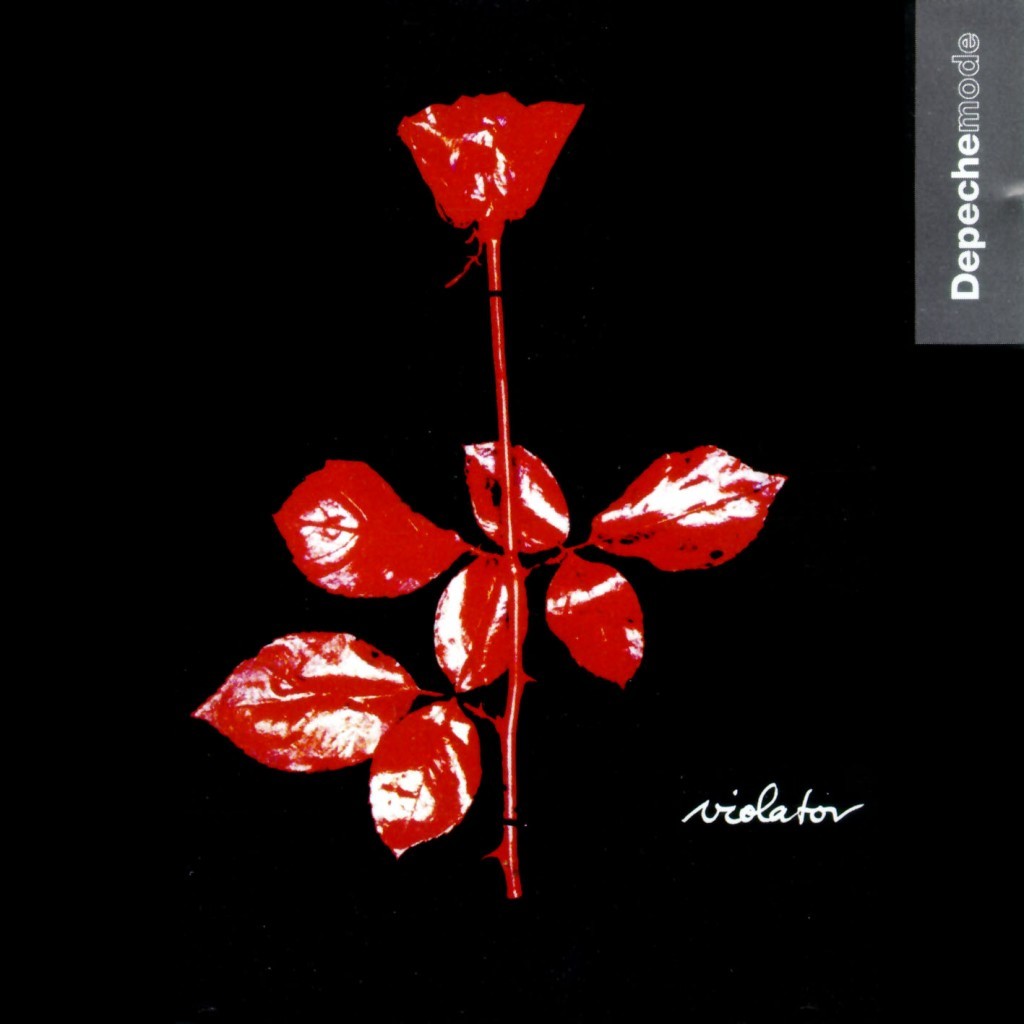
Worst Part Of It: It’s too short. Okay, these nine songs are perfect as a unit, but I personally wouldn’t have minded seeing the B-Sides Dangerous and Sea of Sin in here as well.
Best Part Of It: Depeche Mode fans can disagree on a lot of things, that much is for sure, but I think the majority embraced Violator as the band’s creative peak. Even 27 years later it’s still an almost perfect masterpiece that balances light and dark, and gloomy introspection and forward pop tunes that somehow all work perfectly well together in that specific line-up. Following the big sound of Music For The Masses, Depeche Mode picked a more subtle and reduced setting, gave Gore’s sweet blues guitar a more prominent spot and even got a few techno vibes on board. Combine that with the perfect visual scenery created by Anton Corbijn and you get an example of how a profound pop record could actually look and sound like.
Most Memorable Song: Enjoy The Silence


